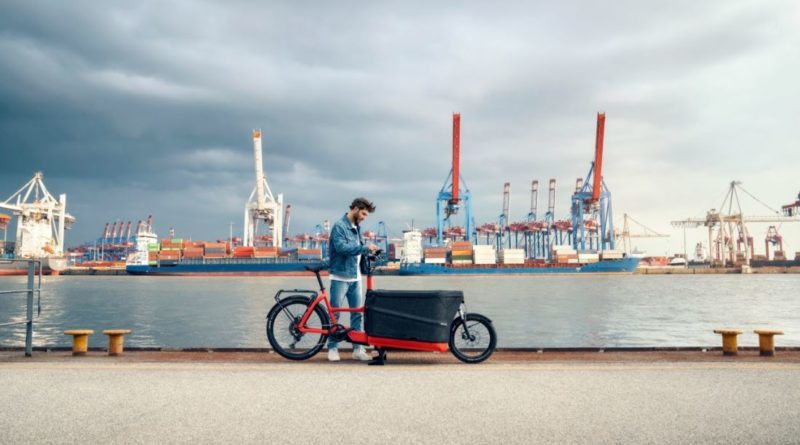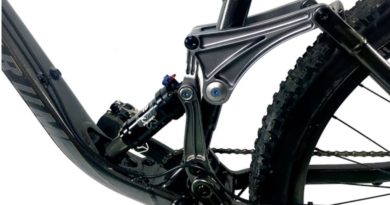German bike market quadruples in a decade to €7 billion
Bicycle production in Germany hit an all-time high in 2022, with 2.6 million bicycles and e-bikes produced. Bicycle production was flat (900,000 units) while e-bikes continued their growth trajectory, up 20% to 1.72 million vehicles.
The numbers from the German Bicycle Industry Association (ZIV) and the VDZ Verband des Deutschen Fahrradhandels also revealed that production value for the parts and components sector increased by 55% to €1.6 billion euros since 2020.
Sales numbers were a slightly more mixed bag, but were very positive in the mid-term. Unit sales fell 100,000 (4.6 million) in 2022 compared with 2021, however 2022’s numbers were up 300,000 units on pre-Corona 2019. E-bikes were consistently positive, with sales values peaking in 2022 at 2.2 million units (up 10% on 2021).
Looking at the longer term, the numbers revealed a startling quadrupling of the German market over the last decade; from circa €2 billion in 2012 to €7.36 billion in 2022.
“The bicycle and e-bike market shows a stable high for the past year despite the general reluctance of consumers to buy in the second half of the year,” said Burkhard Stork, CEO of ZIV. “It is particularly pleasing that quality and innovation ‘Made in Germany’ have become a stable strong driver in the growing e-bike market over the last few years.”
“The bicycle industry is often underestimated in terms of its performance. Yet it makes a significant contribution to value creation in Germany and Europe and stands for sustainable products and jobs.”
E-bikes dominate MTB
Nearly one million mountain bikes (931,600 units) were sold in 2022, 836,000 of which were e-mountain bikes (share around 90%).
The weighty report also laid out some of the vast potential for recreational and tourism MTBing, particularly in view of the difficulties currently facing the ski market. In order to be able to develop this sustainably, above all, a clear and nationwide regulation of access to nature is necessary, ZIV said: “There must not be a patchwork quilt with 16 different state regulations. We expect that the amendment of the Federal Forest Act will lead to uniform nationwide regulations on free access to the forest.”
E-bikes have 48% of the market
With electric bikes how holding a 48% share in Germany, the market is predicted to hit a milestone in 2023: “We expect e-bikes to overtake non-motorised bicycles in terms of unit sales for the first time in the course of this year,” said Stork. “In some product groups, such as mountain bikes or cargo bikes, we now have a very clear dominance of assisted vehicles in Germany.”
According to ZIV surveys, the average sales price was 500 euros for a bicycle and 2,800 euros for an e-bike including VAT in 2022 – across all sales channels and model groups, including significantly more expensive groups including cargo bikes.
“If you look at the price trends, it’s not simply that e-bikes would become more and more expensive. Quite the opposite, you get much more bike for the money today,” said Burkhard Stork. The report cites consumer demand for higher quality components of their bicycles.
The association also noted the end of the supply chain problems that dogged many industries thanks to the pandemic. Price advantages are being passed to consumers, it claimed.
Bicycles as transport
ZIV levelled some criticism at the current German federal government, which lacks direction it said: “Federal Transport Minister Volker Wissing has secured the financial resources for cycling infrastructure of 2.9 billion euros envisaged in the coalition agreement and is promoting bicycle parking at public transport stops with large sums of money. At the same time, the federal government is not setting the right course for the urgently needed mobility turnaround, either in terms of investments or fuels”.
Burkhard Stork added: “Two-thirds of all everyday journeys made by people in cities and rural areas can easily be made by bicycle or e-bike. The bicycle industry is providing the mass transportation of the future. We expect a policy at federal, state and local level that is clearly geared toward the bicycle. Everyone would benefit from this, whether they already use bicycles or not.”
Summing up, Stork said: “Companies in the German bicycle industry have solved the supply chain problems well. The war in Ukraine with its knock-on effects was not foreseeable, but according to the majority opinion of our members, we will also solve this challenge well. We continue to see great interest in bicycles and e-bikes and expect stable growth and a surge in innovation in the coming years. If, in addition, politicians do their homework and people are able to cycle safely and comfortably in everyday life and leisure, there will be nothing standing in the way of Germany as a bicycle country, either in use or in production!”



